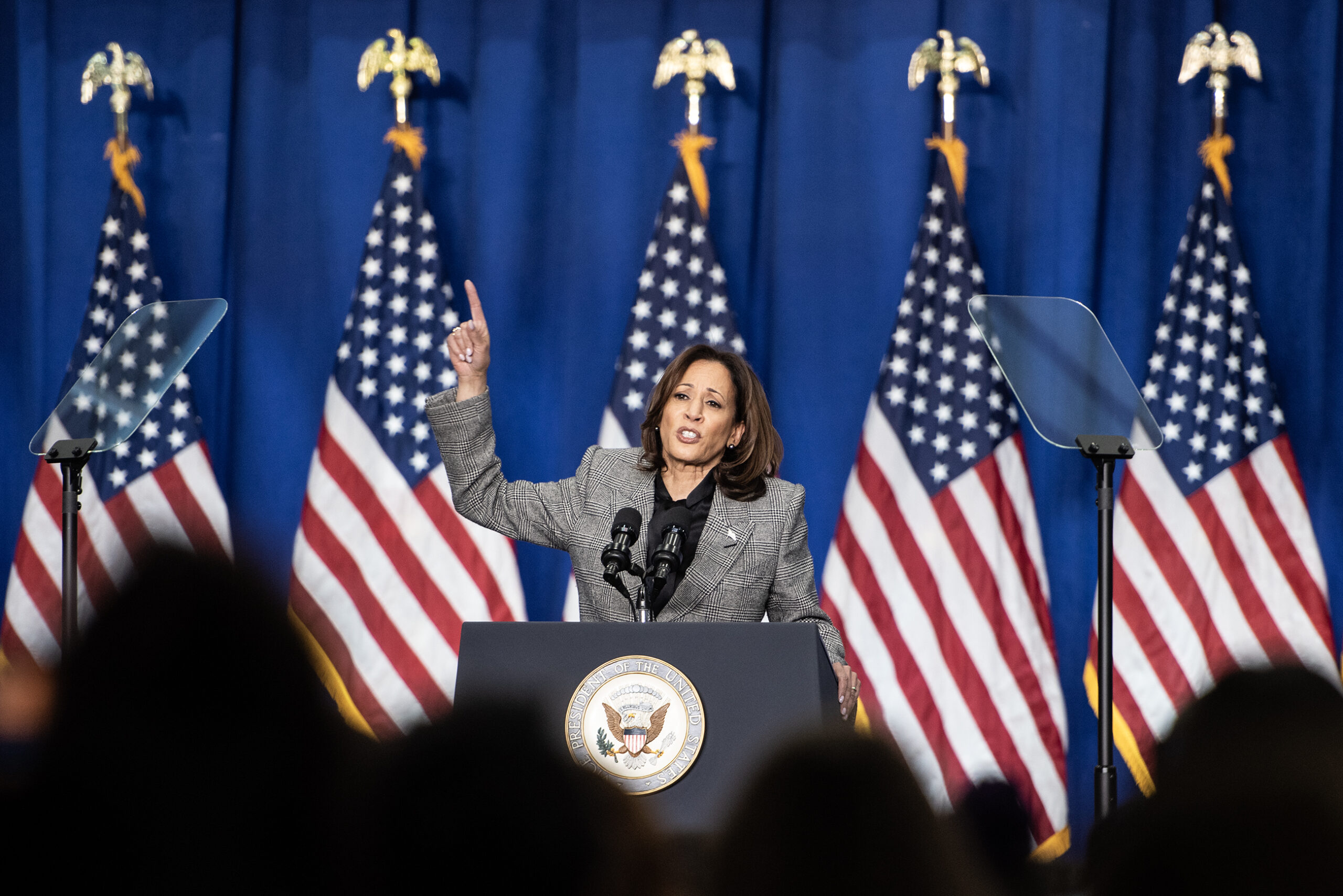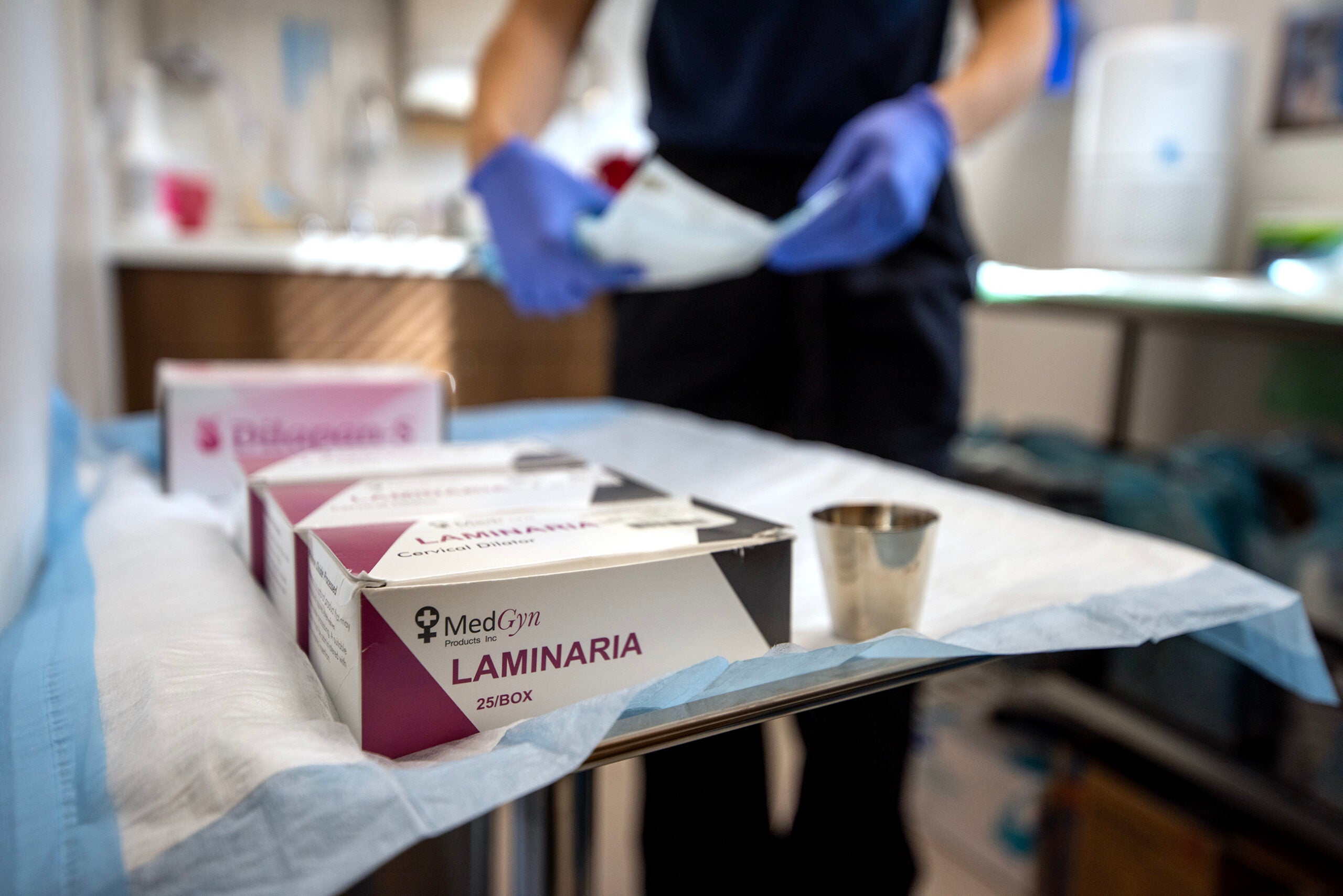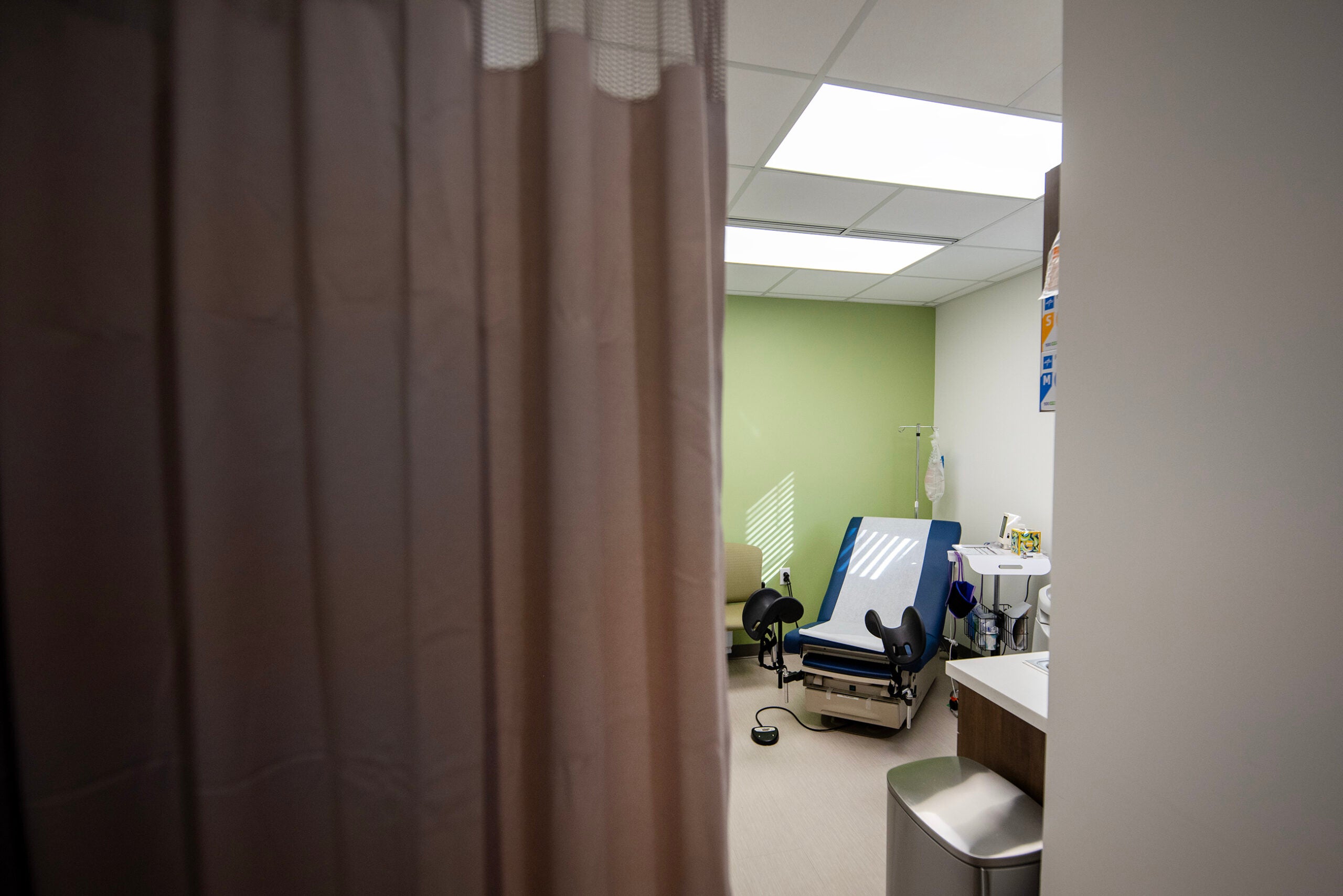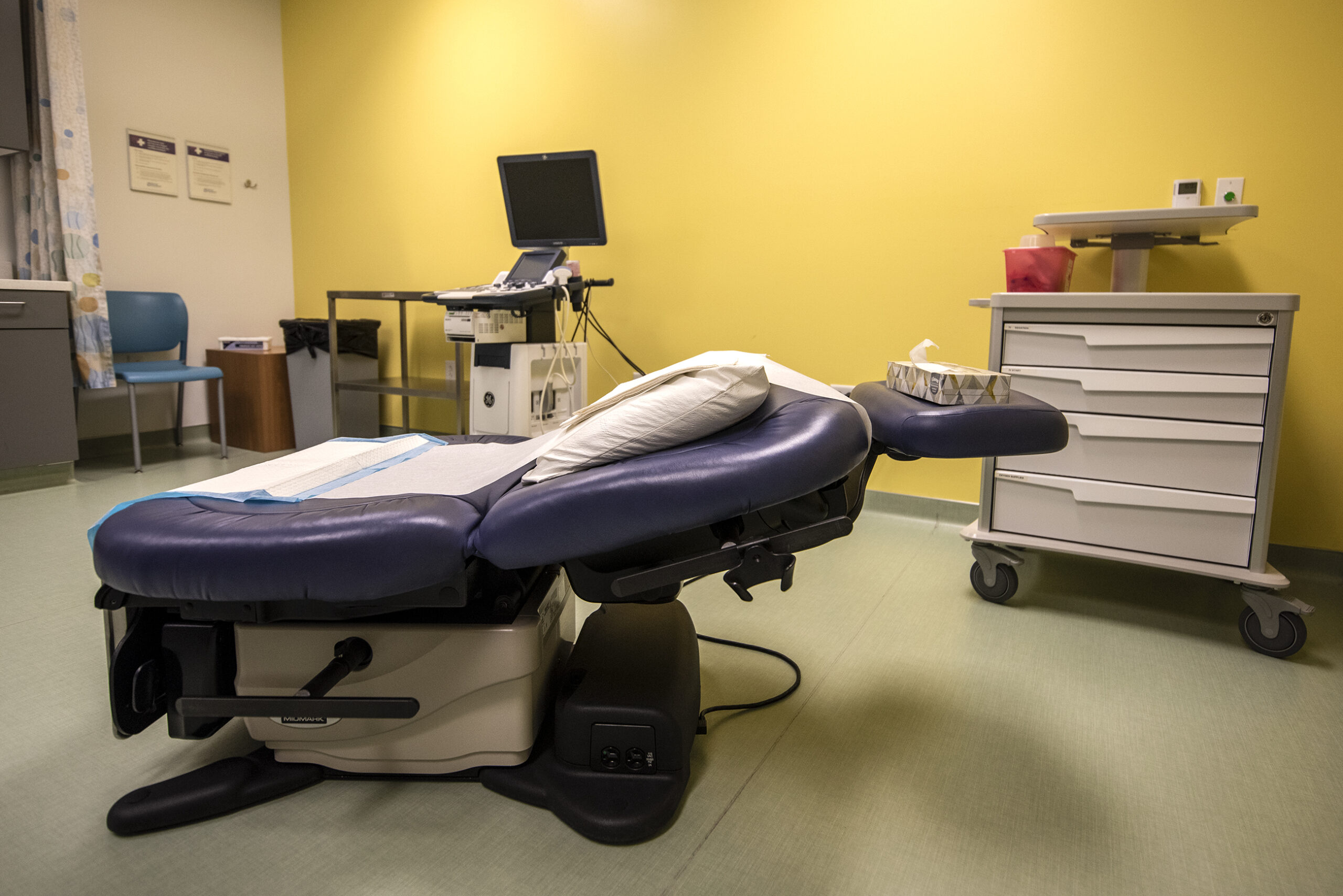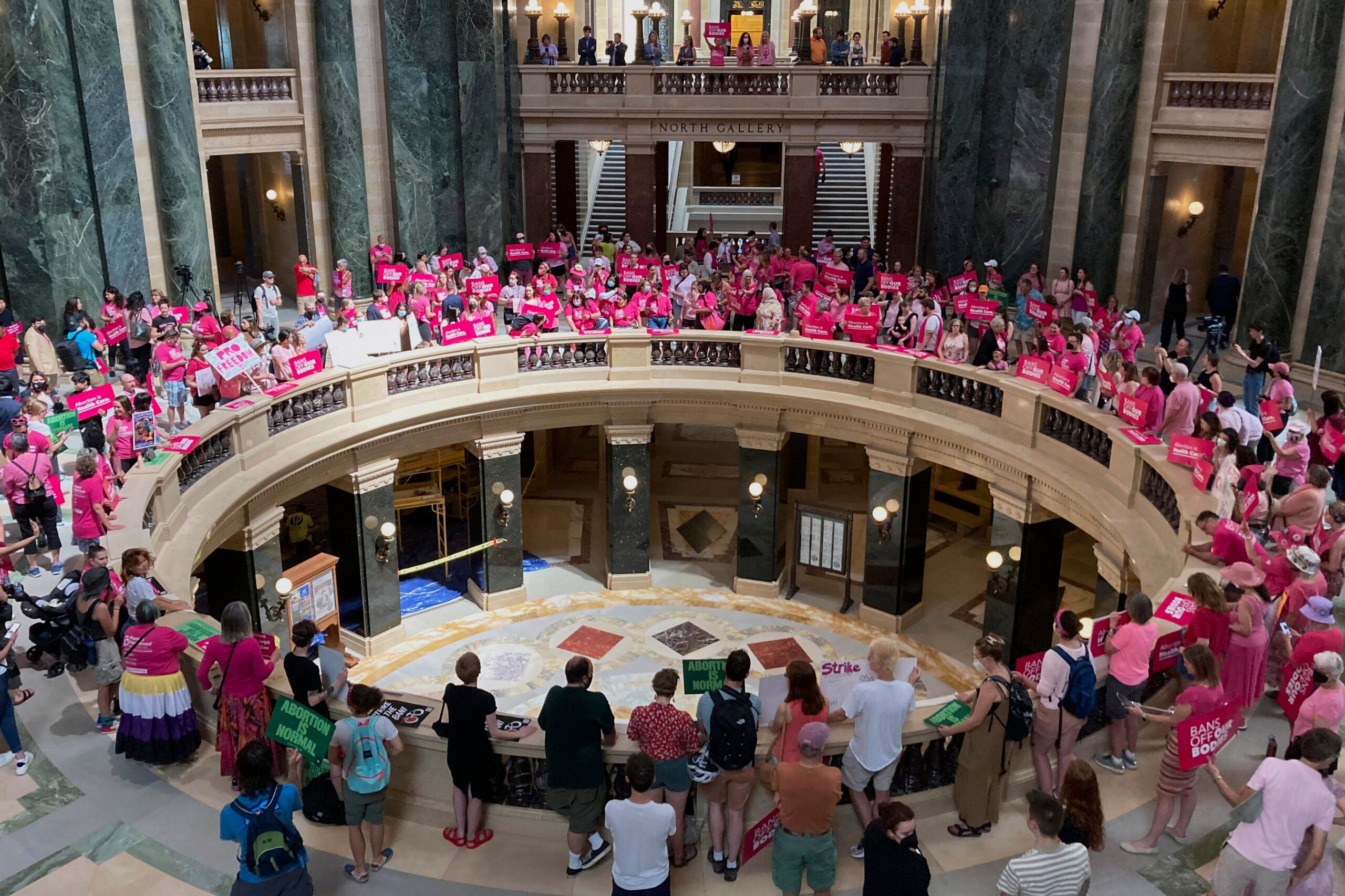In an election year where Wisconsin voters could once again have a heavy hand in deciding the next president of the United States, Vice President Kamala Harris began a national tour in Wisconsin and called the state “ground zero” for reproductive rights.
“The work that we are doing is to encourage folks to understand the power of their vote on this issue,” she said. “It is going to be quite decisive in terms of the outcome of it all.”
Harris’ visit to Wisconsin this week came on the heels of Republican-backed legislation that would restrict abortion in the state after 14 weeks rather than the current 20 weeks.
News with a little more humanity
WPR’s “Wisconsin Today” newsletter keeps you connected to the state you love without feeling overwhelmed. No paywall. No agenda. No corporate filter.
Abortions stopped in Wisconsin after the U.S. Supreme Court pushed abortion regulations back to the states in June 2022. Then, abortions resumed in September last year as a Dane County judge indicated that a state law narrowly bans feticide rather than consensual abortions. Opponents of the ruling have vowed to appeal the decision.
During her visit to Wisconsin on Monday, Harris pledged the Biden administration would protect abortion access at the national level and targeted former President Donald Trump for his role in limiting abortion access.
Ahead of the visit, Harris also spoke with WPR’s “The Morning Show” about enshrining rights to contraceptives and emergency care, as well as travel compensation for people seeking an abortion.
The following has been edited for clarity and brevity.
Kate Archer Kent: Why launch your tour in Wisconsin of all places?
Kamala Harris: Well, first of all, I have spent time in Wisconsin, and fun fact, I once lived in Wisconsin when I was a toddler. So, I feel a sense of connection to Wisconsin. But Wisconsin in many ways is ground zero for this issue. I’m coming to speak with the good people there about the fact that we stand with the women of America, with the people of America, and fighting for fundamental freedoms, including the freedom to make decisions about your own body.
The tour in general is to send a clear message that President Biden and I, we trust women to know what’s in their best interest and that the government shouldn’t be telling them what to do when they have the ability and facility to know what they need to do and what’s right for them.
KAK: Abortions were banned in Wisconsin after the U.S. Supreme Court overturned the nationwide protections, and now abortions are allowed again in the wake of lawsuits challenging bans under state law. What reproductive rights are you advocating for in Wisconsin?
KH: Well, ultimately and essentially that we restore the protections of Roe v. Wade. And so, I’m coming to Wisconsin on the 51st anniversary of the decision in Roe v. Wade, which acknowledged and recognized the right of women to reproductive freedom, which means having the ability to make these decisions for themselves and not have restrictions by the government such that they don’t have free will and freedom in that regard.
I’ll say on this issue, I think it’s important that we all agree, and I believe we do, that one does not have to abandon their faith or deeply held beliefs to agree that the government should not be telling her what to do. If she chooses, she will consult with her priest, her rabbi, her pastor or imam, but (it) should not be the government telling her what to do.
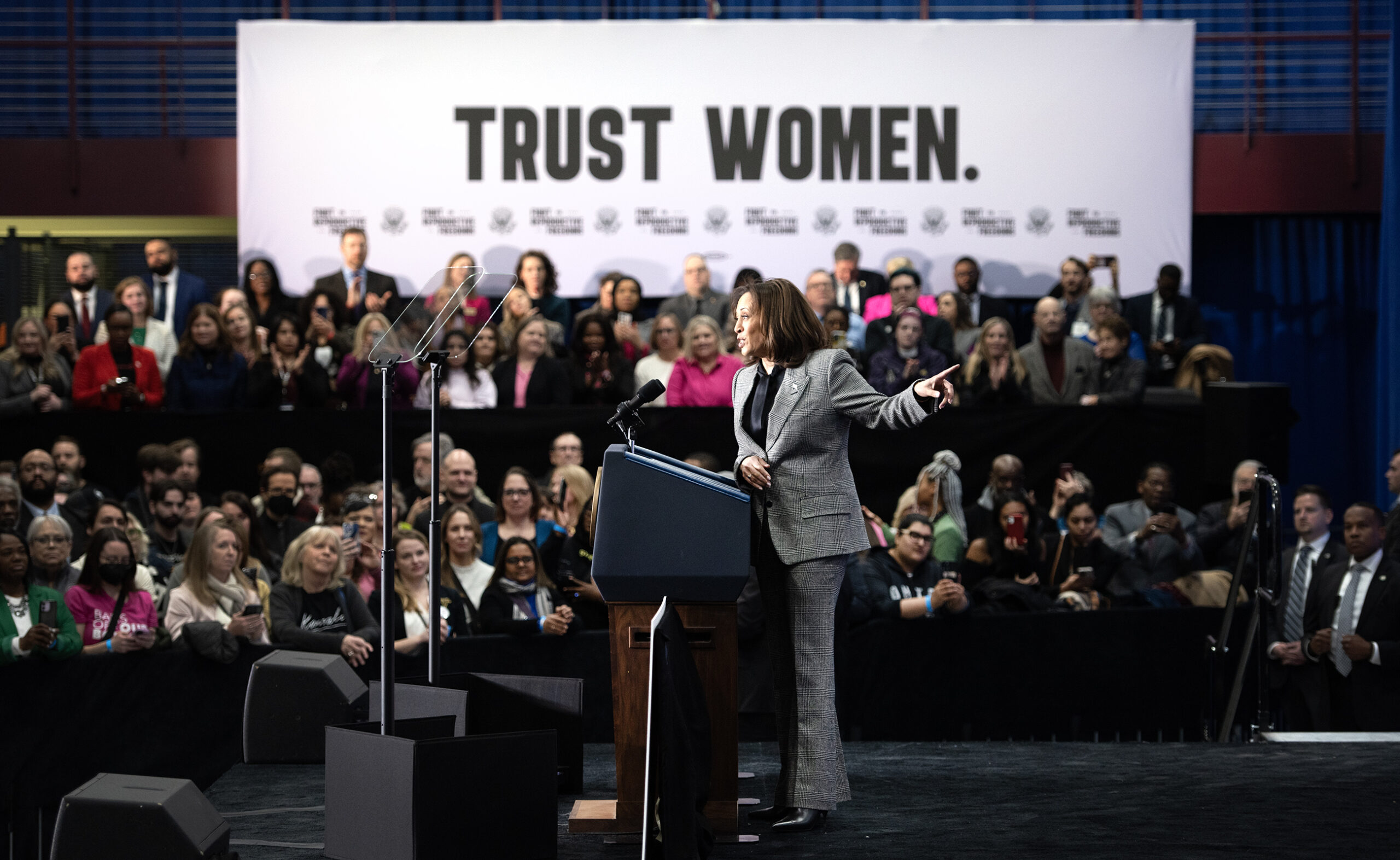
KAK: You’ve been talking about this issue all over the country, but what is your administration doing to support people who are denied access to abortion services in their state?
KH: There’s a lot of work we’ve been doing. But ultimately, the work that we are doing is to encourage folks to understand the power of their vote on this issue. It is going to be quite decisive in terms of the outcome of it all.
The work we have been doing as an administration includes protecting the right that everyone has to emergency care … which means that one should not be and cannot be denied emergency care. We are reminding hospitals and health care providers of that requirement.
We are also making sure that people have access to contraception. Many may remember that when the Dobbs decision came down, it included articulating that contraception might actually be on the chopping block. Excuse me. I guess that’s not the right best way to say it, but might be at risk in terms of people having access to contraception.
We are fighting to ensure that all people have that access and ultimately also ensuring that people have the right to travel and are not denied that ability. I say that because some laws, of course, and some states have proposed that leaving the state to receive health care and reproductive health care could result in some form of penalty.
KAK: To that extent, would you support the federal government covering the travel costs of people who must travel to other states for abortion services?
KH: Right now, we are focusing mostly on what we have in terms of the current laws to protect these rights, and that has been our area of focus. But I will tell you that I certainly do discuss a lot and highlight that there is a real economic impact to these laws being passed, especially as it relates to working women, to people who don’t have paid family leave, who don’t have savings that will allow them to actually be able to afford a plane or train or bus ticket to go where they can receive the reproductive health that they need.
Then we also have on the issue of travel policies that support, for example, travel for military members, members of the military, because those service members don’t have a choice in terms of where they are deployed and which state they then go to. But invariably they may end up in a state that has banned abortion services or restricted those rights. We don’t want to penalize the men and women who have signed up to serve because they happen to go to a state with these draconian laws.
KAK: Here in Wisconsin, Republicans in the Legislature are proposing a ban on abortions after 14 weeks, unless the mother is at risk of serious injuries or dying. What is your response to that limit?
KH: We have got to put back in the protections of Roe v. Wade, and that’s what President Biden and I are determined to do. President Biden has been very clear: When Congress passes a bill restoring the protections of Roe v. Wade, he will sign it into law. And frankly, these are some of the biggest issues at play right now, including what is significant about the outcome of the election in November.
KAK: A recent Marquette University Law School poll estimates about one-third of Wisconsin residents think the economy is “not so good.” Why focus on reproductive rights during this national tour rather than other challenges facing our country?
KH: Oh, I think we have to do both. It is important to understand the connections between them all. When we talk about fundamental freedoms, the freedom to have access to the ballot, the freedom to make a decision about who will be your elected leaders and how they will choose to take positions that either support your need to raise your family or not. These issues are connected.
Fundamental freedom to make decisions about your body are connected with economic policies and how we think about issues like affordable child care and how we think about issues like paid family leave. And ultimately, we have to be able to do both, which is fight for freedom and also strengthen the economy.
Wisconsin Public Radio, © Copyright 2026, Board of Regents of the University of Wisconsin System and Wisconsin Educational Communications Board.

